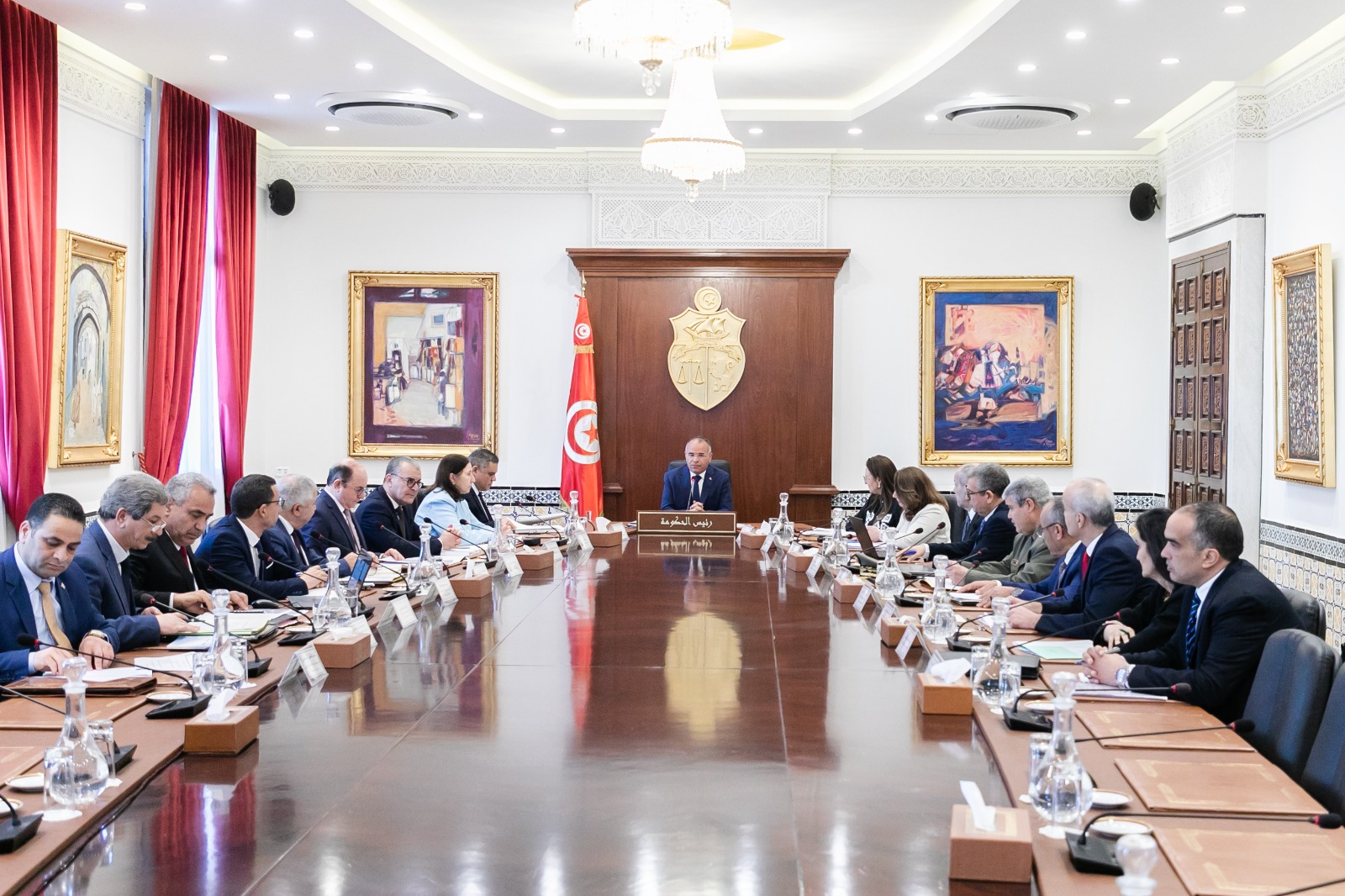A Small Cabinet Meeting was held on Tuesday Feb 25 under chairmanship of Prime Minister Kamel Madouri.
The meeting which focused on the governance of water resources management and the draft Water Code, adopted a set of measures to improve the management and governance of this vital resource.
The aim is to continue mobilising surface water resources by completing the construction of 4 dams, namely the Mellègue and Douimiss dams and the Kalaa Kebira and Said reservoirs, with a total capacity of 318 million m3, as well as launching construction work on the two Raghai and Khalled dams.
The Cabinet also decided to continue mobilising underground water resources by earmarking additional funding for 2025 for the construction of deep wells (over 1,000 metres) in the governorates of Kef and Nabeul.
It was also agreed to enhance the use of treated water to ensure food security, through the creation of 127 stations capable of producing about 292 million m3 of water and 61 other stations producing water for irrigation, and support water desalination programmes to ensure the supply of drinking water, through the completion of the construction of the Sousse plant, with a production capacity of 50 thousand m3 per day, and launch of the construction of 7 other groundwater desalination plants in the southern governorates, with a total capacity of 40 thousand m3 per day.
Other measures include finalising the development of the ‘Water Management Plan to 2050’ master plan, and encouraging the use of renewables to cut the cost of producing and transferring water through energy audits and improving the energy efficiency of hydraulic and administrative works and facilities, with hydroelectricity and photovoltaics accounting for 30% ofthe total energy consumption by 2035.
The Cabinet further decided to install an energy management system to rationalise energy use, and to plan the construction of two plants in Sfax and Tozeur to save 40% of energy consumption spread over six desalination plants.
Besides, It decided to create a digital decision-making platform for real-time management of water resources and to implement an action plan to minimise evaporation from water bodies, in collaboration with the Ministry of Higher Education and Scientific Research.
It also decided to rehabilitate drinking water supply systems in rural areas, at a cost of some TND 2.3 billion, and to devise an action plan to encourage large-scale use of rainwater, in collaboration with the Ministries of the Interior, National Defence, Higher Education and Transport.
The widespread use of smart meters and the acceleration of the pace of action to submit a final version of the draft Water Code to a Council of Ministers was also agreed on.
Taking the floor, the Prime Minister pointed out the importance of the issue of water and water resources and their management given their role in achieving the Sustainable Development Goals (SDGs), in line with the United Nations recommendations on access to drinking water and sanitation services by 2030.
Madouri underlined the need to draw up integrated water management programmes based on the provision of maximum resources and mechanisms for the mobilisation and diversification of water resources, and the allocation of the necessary financial resources under national plans for the development of non-conventional water resources, the optimisation of the water-energy-food security nexus, and the development of water efficiency programmes in the various public structures, the rationalisation of irrigation water, the adaptation of the agricultural sector to these challenges and the enhancement of water resources throughout the value chain in the water sector.
The PM further affirmed the State’s determination to pursue priority projects in the water sector for the period 2026-2030, by mobilising water resources through the construction and upgrading of dams, mountain lakes and water transfer facilities, as quoted in the ministry’s press release.
The aim is also to improve the efficiency of distribution networks, by rehabilitating drinking water supply systems in urban and rural areas, rehabilitating and modernising irrigated areas, developing agricultural land and encouraging best practices for the sustainable management of natural resources and renewables.
Secretary of State to the Minister of Agriculture, Water Resources and Fisheries in charge of Water Ridha Kabbouj recalled that the Water Code dates back to 1975, and that there is now a need to remedy a number of shortcomings, including the low efficiency of management mechanisms, poor governance in the management of the public water domain and the lack of a unified information system dedicated to the water sector, etc.
The draft new Water Code will ensure good governance of water resources, through the introduction of integrated and sustainable management mechanisms adapted to the context of climate change, he considered.

